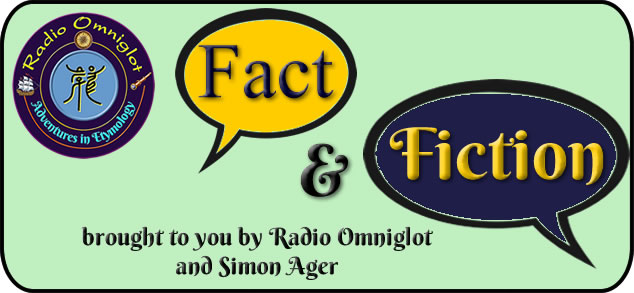Podcast: Play in new window | Download

Here’s the latest news from the world of Omniglot.
New language pages:
- Kgalagadi (SheKgalagadi), a Southern Bantu language spoken mainly in the Kgalagadi and Gantsi districts in southern Botswana.
- Saluan (Bahasa Saluan), a Celebic language spoken in the east of Sulawesi in Indonesia.
- Humburi Senni (humburi ciini / هُمْبُرِ ٺِينِ), a Southern Songhay language spoken mainly in southern Mali, and also in Burkina Faso.
New constructed script: Azkarthelian (Azkarthe’elith), an abjad created by Murray Callahan for his conlang of the same name.

New numbers pages:
- Saluan (Bahasa Saluan), a Celebic language spoken in the east of Sulawesi in Indonesia.
- Wintu (winthu:h), a Wintuan language that was spoken in northern California in the USA, and which is being revived.
- Emilian-Romagnol (emiliân-rumagnol), a Romance language spoken mainly in northern Italy, and also in San Marino.
- Föhr (Fering), a variety of North Frisian spoken on the island of Föhr in the German region of North Frisia.
New family words page: Föhr (Fering), a variety of North Frisian spoken on the island of Föhr in the German region of North Frisia.
On the Omniglot blog this week we look into idioms that mean Better Safe Than Sorry and similar things in various languages, and there’s the usual Language Quiz. See if you can guess what language this is:
Here’s a clue: this language is spoken in Poland, Slovakia and Czechia.
The mystery language in last week’s language quiz was Bouyei (Haausqyaix), a northern Tai-Kaidai language spoken mainly in southern China, and also in northern Vietnam.
In this week’s Adventure in Etymology, we investigate the origins of the word Cardinal, and find out what it has to do with hinges and a Roman goddess.
It’s also available on Instagram and TikTok.
On the Celtiadur blog there’s a new post entitled What? about words for what? which? who? where? and related things in Celtic languages.
I also made improvements to the North Frisian language page.
For more Omniglot News, see:
https://www.omniglot.com/news/
https://www.facebook.com/groups/omniglot/
https://www.facebook.com/Omniglot-100430558332117
You can also listen to this podcast on: Apple Podcasts, Amazon Music, TuneIn and Podchaser.
If you would like to support this podcast, you can make a donation via PayPal or Patreon, or contribute to Omniglot in other ways.
Radio Omniglot podcasts are brought to you in association with Blubrry Podcast Hosting, a great place to host your podcasts. Get your first month free with the promo code omniglot.















